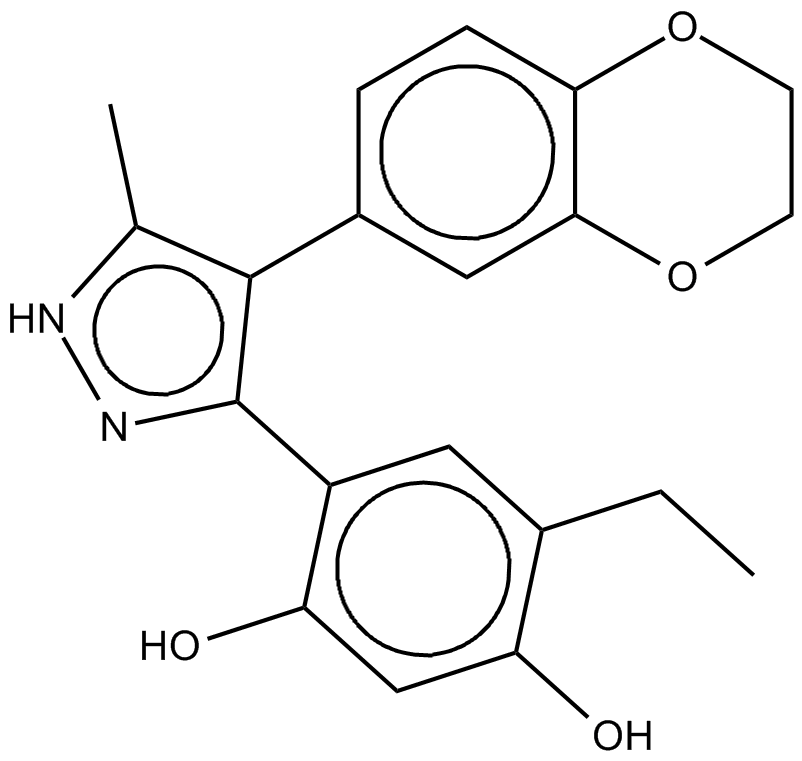CCT018159 |
| Catalog No.GC10223 |
CCT018159, un 3,4-diarilpirazolresorcinol, es un inhibidor de la actividad ATPasa HSP90 ATP-competitivo con IC50 de 3,2 y 6,6 μM para Hsp90β humano y Hsp90 de levadura, respectivamente. CCT018159 provocÓ citostasis celular asociada con una detenciÓn de G1 e induce apoptosis. CCT018159 inhibe las funciones clave de las células tumorales y endoteliales implicadas en la invasiÓn y la angiogénesis.
Products are for research use only. Not for human use. We do not sell to patients.

Cas No.: 171009-07-7
Sample solution is provided at 25 µL, 10mM.
IC50: 3.2 and 6.6 μM for human Hsp90β and yeast Hsp90, respectively
CCT018159 is an inhibitor of Hsp90.
The molecular chaperone heat shock protein 90 (HSP90) regulates the activation, stability, and biological function of various oncogenic client proteins, such as steroid hormone receptors, kinases, and other proteins.
In vitro: CCT018159 was identified by high-throughput screening inhibiting human HSP90beta with comparable potency to 17-AAG and with similar ATP-competitive kinetics. X-ray crystallographic structures of the yeast Hsp90 complexed with CCT018159 showed binding properties similar to radicicol. The mean cellular GI50 of CCT018159 across a panel of human cancer cell lines, including melanoma, was 5.3 μM. Unlike 17-AAG, the in-vitro antitumor activity of CCT018159 was independent of NQO1/DT-diaphorase and P-glycoprotein expression. The signature of HSP90 inhibition, comprising increased expression of HSP72 protein and depletion of ERBB2, CDK4, C-RAF, and mutant B-RAF, was indicated in human cancer cell lines treated with CCT018159 [1].
In vivo: In human tumor xenografts including SKMEL 28 melanoma cells, CCT018159 was found to induce the expression of Hsp72 as well as ERBB2, Cdk4 and dc-Raf [1].
Clinical trial: Up to now, CCT018159 is still in the preclinical development stage.
Reference:
[1] S. Y. Sharp, K. Boxall, M. Rowlands, et al. In vitro biological characterization of a novel, synthetic diaryl pyrazole resorcinol class of heat shock protein 90 inhibitors. Cancer Research 67(5), 2206-2216 (2007).
Average Rating: 5 (Based on Reviews and 20 reference(s) in Google Scholar.)
GLPBIO products are for RESEARCH USE ONLY. Please make sure your review or question is research based.
Required fields are marked with *




















